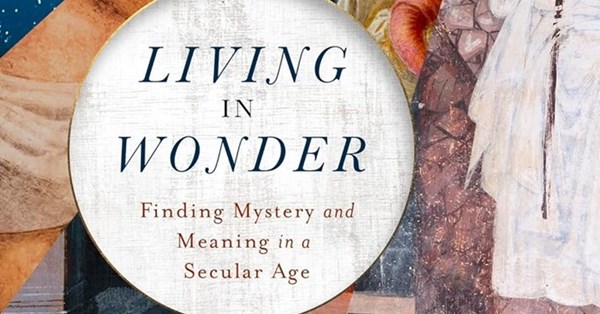THE prolific Rod Dreher, author of, among other works, The Benedict Option: A call to more intentional Christian living and Live not by Lies, an attack on what Pope Benedict XVI called the “worldwide dictatorship of seemingly humanistic ideologies”, has written what is perhaps his most compelling work so far: a call to regain that sense of enchantment which modern Western culture has so disastrously lost.
As is well documented elsewhere (although punchily recounted in Dreher’s vivid prose), the traditional view of Christendom was that “all reality was one in God”. All things participate in the divine reality, and thus point towards deeper communion with the Creator. A serious blow to this sacramental understanding of the universe came in medieval times with Nominalism, which radically separated God from creation. This dislocation has been increasingly turbocharged by the Reformation, the emergence of capitalism, and, most recently, by the internet. In the words of one guru of Silicon Valley, “organism is algorithm”: everything — including all that it means to be human — is increasingly liable to become disenchanted, disembodied, and viewed as a machine.
Dreher argues that the solution must be for Christians deliberately to seek re-enchantment: to find an intimate personal sense of reconnection. “Doctrine and theology are necessary,” he writes, “so, too, are evangelism and good works. But without a sustained felt connection to the living God, these aspects of Christian living can ossify.”
Such a connection can be found again through heightened attention to beauty in art, music, or the natural world, and it can be sustained through dedication to practices of prayer in a variety of forms. Likewise, if architects, musicians, and writers — among others — learn once again to construct their work in harmony with divinely ordained ratios and patterns, they have the power to provide a direct way in to faith and holiness.
Dreher is a convert (via Roman Catholicism) to Orthodoxy and so he sees in the liturgy and world-view of the Orthodox Churches the surest way to achieve the re-enchanted, reintegrated vision of all things which, he believes, will lead humanity back from the abyss. Given Anglicanism’s history in the Reformation, and its tendency to fit in with the cultural and political status quo, he would probably see it as part of the problem rather than the solution.
Anglicans, however, have traditionally been ready to see that, for example, beautiful music, art, and architecture do indeed have the power to re-enchant us. Similarly, our commitment to finding God’s presence in the particularities of physical place and time resonates with Dreher’s overall project. Perhaps, then, we can start to rectify some disastrous missteps of recent years by once again giving sacramentality, beauty, contemplation, and enchantment the central place that, he convincingly argues, they should hold.
The Very Revd Dr Edward Dowler is Dean of Chichester.
Living in Wonder: Finding mystery and meaning in a secular age
Rod Dreher
Hodder & Stoughton £20
(978-1-3998-0786-9)
Church Times Bookshop £18

















